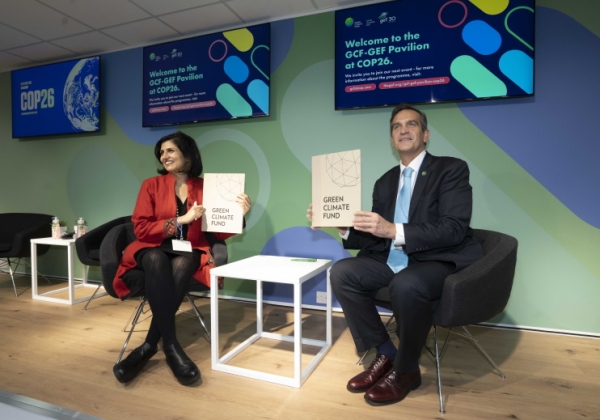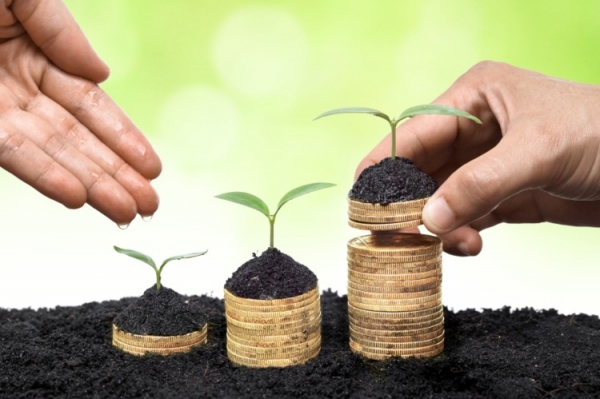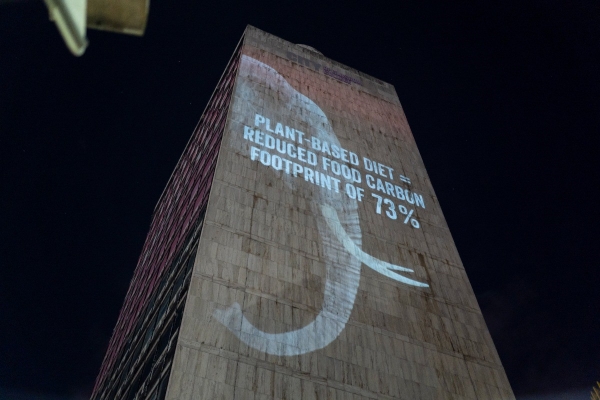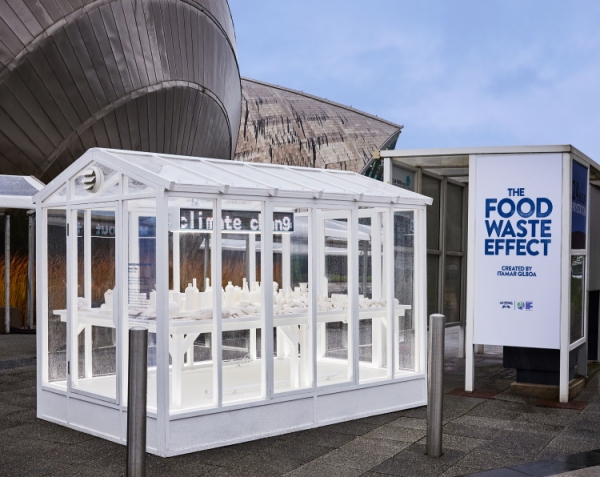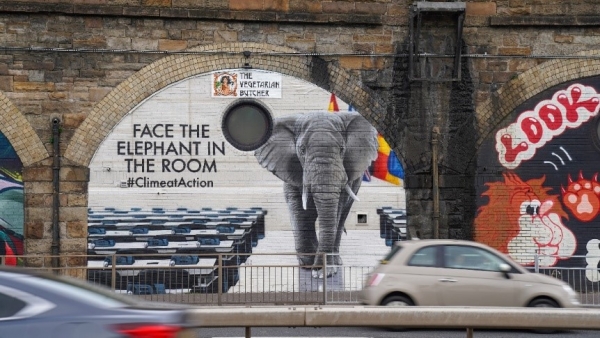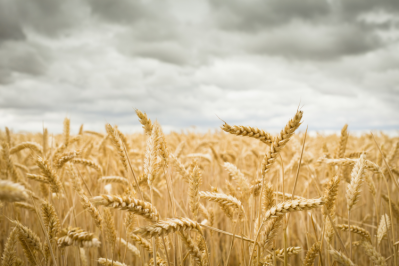The food industry at COP26: FoodNavigator’s digest of news and views from Glasgow
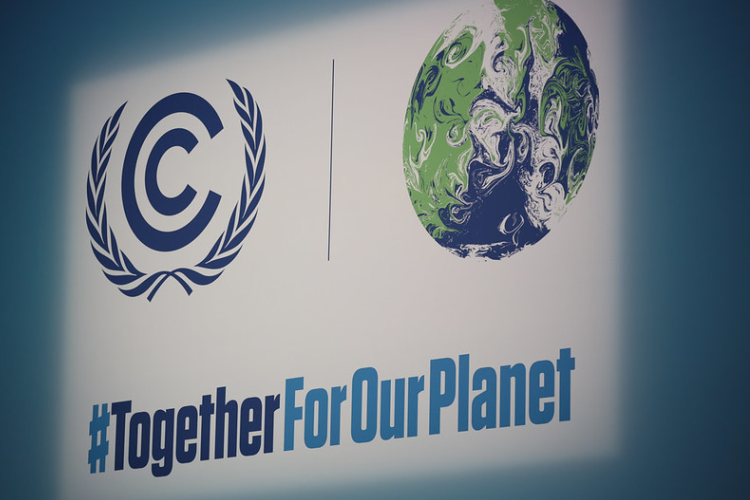
World leaders have gathered in Glasgow to take part in the COP26 summit, a UN conference that hopes to build consensus on how to avert some of the most disastrous consequences of climate change.
The summit follows the monumental 2015 the Paris Agreement, which was inked by over 190 countries. The landmark deal enunciated a shared global determination to limit rising global temperatures to well below 2°C, with an ambition of keeping global heating to 1.5°C above pre-industrial levels.
But the past six years have been bruising for the climate agenda. In this context, Glasgow has been billed as our last best hope to agree a shared roadmap to bring emissions in-line with levels required to reach the Paris targets.
“Humanity has long since run down the clock on climate change. It’s one minute to midnight on that Doomsday clock and we need to act now,” British Prime Minister Boris Johnson said.
This sense of urgency – but also a message of hope – has been a prevailing theme in the conference’s first days.
“Glasgow must be the start of a decade of shared ambition and innovation to preserve our future,” US President Joe Biden said, insisting that he has taken measures to reverse the climate-sceptic policies of his predecessor former President Donald Trump. “We can do this – we just have to make a choice to do it.”
Whether this optimistic note will ring true at the end of the two-week event, which runs from 31 October to 12 November, will in large part depend on whether collective approaches can be agreed, and compromises struck. Over the next two weeks, leaders from more than 190 countries, thousands of negotiators, scientists and citizens will come together in an attempt to hammer out a global response to the threat of climate change.
Our rolling news blog will keep you updated on the latest COP26 news from across the food industry.
COP26 disappoints: Agreement 'compounds sense of unfairness’ felt by farmers, 14 November
The outcome of the COP26 negotiations has caused Irish farming groups to hit out at the ‘unwillingness’ of ‘some of the world’s biggest nations’ to tackle the issue of fossil fuel emissions while a spotlight continues to be placed on animal agriculture.
Wrapping up two weeks of negotiations that hoped to keep the Paris Agreement target to limit global heating to 1.5C, global powers agreed to report back on their climate progress next year and governments were asked to provide tighter deadlines for updating their plans to reduce emissions.
However, COP26 President Alok Sharma struggled to hold back tears following the announcement of a last-minute change to the pact, by China and India, softening language circulated in an earlier draft about “the phase-out of unabated coal power and of inefficient subsidies for fossil fuels”. As adopted on Saturday, that language was revised to 'phase down' coal use.
Sharma apologized for 'the way the process has unfolded' and added that he understood some delegations would be 'deeply disappointed' that the stronger language had not made it into the final agreement.
“I know you are disappointed. But the path of progress is not always a straight line. Sometimes there are detours. Sometimes there are ditches. But I know we can get there. We are in the fight of our lives, and this fight must be won. Never give up. Never retreat. Keep pushing forward,” UN chief António Guterres added in a video statement.
Reacting to the final agreement, Irish farming representative Paul O’Brien, IFA Environment Chairman, said farmers were ‘very conscious’ of climate change and the need for them to play their part. “But it needs to be fair,” he stressed. “What is fair about adding targets and increased costs on Irish farm families, but allowing huge global coal producers to shirk their responsibilities?”
O’Brien said the deal on methane reduction stands as case in point. “Last week, a commitment was given to cut global methane emissions by 30%. But the world’s biggest methane emitters - China, Russia and India - which contribute 35% of methane emissions, refused to sign up for it. This is not fair to Irish farmers, who are being asked to do more and more for less.
“Farm families are genuinely fearful about what the future holds. Recent Government policy proposals, including those on the CAP, are all about reducing production and adding cost. The CAP is there to support farmers to produce food. It cannot be expected to fund climate action as well,” he said.
“The outcome of COP26 once again highlights the issue of carbon leakage. If we produce less food in Ireland, more will be produced in countries with a higher carbon footprint, and in many cases in countries with no intention of playing their part to reduce emissions in any way. This will increase global warming.”
‘Don’t lose this opportunity’ Fairtrade urges, 10 November
Fairtrade, the organisation that represents 1.8m Fairtrade farmers and workers, has urged global leaders to seize the opportunity to move the needle on climate change following the first draft of the COP26 agreement.
Fairtrade’s Head of Delegation, Mary Kinyua, who is a flower producer from Kenya, said producers want to see ‘critical action from our world leaders’. “As we near the final corner, it’s vital that governments don’t lose this opportunity to make sure COP26 delivers.”
She suggested the draft document contains ‘some elements of progress’ but suffers from an ‘overwhelming lack of commitment’.
“Right now, commitments from governments remain far short of what scientists say is needed to keep warming below dangerous levels. Unless this changes we are on course for a 2.4°C rise, which would be devastating for Fairtrade farmers and workers like myself, and devastating for humanity. The time for government posturing has passed: we desperately need to see a clear, ambitious plan for cuts that give us a fighting chance of averting climate catastrophe," Kimyua argued.
Fairtrade launched a new climate-focused partnership with Grow Ahead, a leading crowd-funding platform addressing the local challenges of climate change. The two organisations said they will work together to deliver comprehensive climate mitigation solutions to small-holder farmers through targeted agroforestry efforts.
“While global leaders meet in Glasgow, Fairtrade and Grow Ahead are committing to tangible efforts in delivering concrete solutions for those made most vulnerable by climate change,” said Dr Nyagoy Nyong’o, Global CEO of Fairtrade International.
“As the recent Fairtrade and Climate Change report made clear, the threat to the future of our planet’s farmers and agricultural workers is very real and very severe. The time to stop talking and take action is now and that’s exactly what this partnership does.”
UK industry body unveils Net Zero handbook, 9 November
The Food and Drink Federation (FDF) has launched a handbook to help food and drink manufacturers on their journeys to Net Zero.
The ‘Achieving Net Zero’ handbook outlines how the FDF and the food and drink sector can address these challenges, and provides practical guidance for food and drink manufacturers, particularly those at the early stages of developing their climate strategy.
The FDF said COP26 in Glasgow comes at a pivotal time as the food and drink industry looks to address both the causes and consequences of climate change, ambitiously aiming to move towards Net Zero.
Ian Wright CBE, Chief Executive, Food and Drink Federation, said: “The publication of this excellent handbook for food and drink manufacturers is a significant moment in our sector’s journey to Net Zero. The handbook will be an important tool for food and drink manufacturers - and others across the supply chain - striving to achieve Net Zero by 2040. This work demonstrates the huge value of ever stronger collaboration with all stakeholders across the farm-to-fork supply chain. Created and published in the slipstream of COP26, the ideas and actions outlined here provide an indispensable blueprint for food and drink businesses to deliver their Net Zero ambitions.”
Farmers unveil new initiative to show how agriculture can be a climate change solution, 9 November
What was called an ambitious collective action plan to scale regenerative food production systems worldwide was launched at COP26.
The Regen10 initiative will work with over 500 million farmers to apply regenerative production methods and transform agricultural systems, as well as ensure roughly USD $60 billion per year is deployed to finance the transition. By 2030, it is hoped that over 50% of the world’s food can be produced in a way that drives positive outcomes for people, for nature, and for climate, it said.
Regen10 is a broad alliance, including the Sustainable Food Trust, World Farmers Organisation, Eastern Africa Farmers Federation, Food & Land Use Coalition, World Bank Group, World Business Council for Sustainable Development (WBCSD), International Union for the Conservation of Nature (IUCN), SYSTEMIQ, IMAGINE, We Mean Business Coalition, Future Stewards, OP2B and Club of Rome.
Patrick Holden, CEO of the Sustainable Food Trust, said: “There is a lot of confusion about the right way to farm sustainably and about what to eat to be healthy and sustainable. To overcome this, we need a harmonised way to measure sustainability.
“The power of Regen10 to encourage government to act to include food and agriculture in the climate change agenda has never been more important. There is a major opportunity here to transition agriculture towards a system that works in harmony with nature, with crucial benefits for the climate. To support this transition, we need a Global Farm Metric that helps farmers to understand their impact, informs policymakers to support farmers in the right ways, and helps businesses and citizens to understand the sustainability of the food they buy.”
US$143m to help small scale farmers in West Africa adapt to climate change, 8 November
A new US$143m investment programme aims to help rural people living in the Sahel region of West Africa adapt to climate change, including plans to restore degraded land, provide climate information systems and agricultural insurance.
The announcement was made at a signing ceremony between the UN’s International Fund for Agricultural Development (IFAD) and the Green Climate Fund (GCF).
The Africa Integrated Climate Risk Management Programme will operate in seven countries: Burkina Faso, Chad, The Gambia, Mali, Mauritania, Niger and Senegal. This is part of the African-led Great Green Wall (GGW) initiative which aims to restore degraded landscapes in the Sahel, one of the world’s poorest regions.
“Small-scale farmers urgently need investments to adapt to the impacts of climate change, especially in the Sahel region where their lives and livelihoods are under enormous threat. With financial support, infrastructure and access to technology, we can help create a new generation of climate -resilient farmers and rural communities in the Sahel,” said Gilbert F. Houngbo, President of IFAD.
“Our partnership with IFAD will help build the Great Green Wall to ensure vulnerable rural communities in Africa can shape their own futures in a warming world. GCF’s $82.8 million investment will enhance climate resilience in the Sahel by helping smallholder farmers access agricultural insurance and strengthen climate weather information services,” said Yannick Glemarec, Executive Director of Green Climate Fund.
The Sahel is expected to see temperatures rise 1.5 times faster than in the rest of the world. Research from the Sahel shows that the climate is getting drier and the rainy season is becoming shorter and more intense, and moving later in the year. This means farmers are no longer sure when to sow and when to harvest. The increased frequency of extreme weather events, like drought and flooding, can cause a decline in production by as much as 30%, and increased humidity can lead to more diseases affecting crops and livestock.
Through this programme, IFAD will work with the African Development Bank (AfDB), the World Food Programme (WFP) and the African Risk Capacity (ARC) Group to address climate-related agriculture risks. Investments in climate information and early warning systems will limit impacts on farmers before a crisis occurs; climate-resilient farming techniques and better adaption measures will assist farmers to adapt during a crisis; and loss and damage will be reduced with access to agricultural insurance.
The programme also aims to restore ecosystems, increase food security, create jobs and promote peacebuilding in the Great Green Wall areas. It is expected to result in the reduction or avoidance of approximately 21.4 million tonnes of carbon dioxide over the life of the programme.
“Predictable funding is critical to effectively addressing the human impacts of natural disaster risks, especially for smallholder farmers and their families. The multi-agency approach we have adopted to implementing this programme will strengthen smart partnerships towards building climate resilience and adaptation in the region,” said Ibrahima Cheikh Diong, Director-General of the African Risk Capacity Group.
Leading supermarkets pledge to make UK shopping baskets greener, 6 November
The CEOs of the ‘big five’ major UK supermarkets have committed to slash their impact across climate, deforestation nature and guide the whole food retail sector towards halving its overall impact on the natural world by 2030.
In an announcement made at the COP26 summit, the leaders of Co-op, M&S, Sainsbury’s, Tesco and Waitrose signed WWF’s Retailers’ Commitment for Nature. This stated: “As CEOs of leading UK food retailers, we recognise that a future without nature is a future without food. By 2030 we collectively need to halt the loss of nature.”
The progress towards this will be tracked by conservation charity WWF. It claimed the global food sector is responsible for more than 30% of total climate emissions and 60% of nature loss.
JBS inks feed additive deal to cut cow methane emissions globally, 6 November
JBS, the world's second-largest food company and the largest meatpacking company, has signed a deal with Royal DSM with the goal of reducing enteric methane emissions from cattle on a global scale.
JBS will use a feed additive called Bovaer, developed over 10 years by Dutch company DSM. Bovaer is added to animal feed, and can reduce up to 90% of methane emissions, according to a recent Australian study. This found that a quarter of a teaspoon of the additive a day, per animal, inhibits the enzyme that activates the production of methane gas in the stomach of the ruminant. The effect is immediate and, if use is interrupted, the emission of gases is fully summarized.
UK leads nature and land-use pledge for sustainable ag, 6 November
Forty-five governments, led by the UK, have pledged 'urgent action and investment 'to protect nature and shift to more sustainable ways of farming at the COP26 Nature and Land-Use Day.
"Urgent action on land use is needed as demand for food increases. We are currently losing forests, damaging soils and rapidly destroying other ecosystems that play a critical role in absorbing carbon and cooling the planet. Farmers’ livelihoods are also under increasing pressure as climate change impacts on productivity. To help farmers adapt and to make our food system more resilient for the future, more sustainable practices are essential," the UK's Department for Environment, Food and Rural Affairs (Defra) said.
Countries outlined a commitment to 'transform' agriculture and food systems through policy reforms, research and innovation. This includes leveraging over US$4 billion of new public sector investment into agricultural innovation, including the development of climate resilient crops and regenerative solutions to improve soil health, helping make these techniques and resources affordable and accessible to hundreds of millions of farmers.
This commitment includes a pledge to support internationally agreed “Action Agendas” which set out steps that governments, farmers and others can take through policy reform and innovation to deliver the changes necessary for sustainable food systems. Sixteen countries will launch a “Policy Action Agenda” and more than 160 stakeholders will join a “Global Agenda for Innovation in Agriculture” to lead the way on the global transition towards climate resilient agriculture and food systems to more sustainable ways of farming.
Additionally, the UK will launch a new £500 million package to help protect five million hectares of rainforests from deforestation, an area equivalent to over 3.5 million football pitches. The funding will create 'thousands of green jobs', including in sustainable agriculture and forestry, throughout rainforest regions and generate £1 billion of green private sector investment to tackle climate change around the world, Defra suggested.
"There needs to be a fair and just transition that protects the livelihoods and food security of millions of people worldwide – with farmers, indigenous people and local communities playing a central role in these plans," UK Environment Secretary George Eustice said.
UK will also outline a range of new funding commitments from the £3 billion fund for nature, including:
- Nearly £25 million out of the £150 million from BEIS’ Mobilising Finance for Forests (MFF) programme will be invested to develop sustainable supply chains in tropical countries
- An investment of over £38 million into a new global research initiative through the world’s leading agricultural research organisation, the CGIAR (formerly the Consultative Group for International Agricultural Research), to address the climate crisis and protect nature while advancing gender equality, poverty reduction, and food and nutrition security
- The UK will contribute up to £40 million of international climate finance to establish the Global Centre on Biodiversity for Climate. The Global Centre will address critical research gaps in how the conservation and sustainable use of biodiversity can deliver climate solutions and improve livelihoods in developing countries
The UK will also launch a £65 million Just Rural Transition support programme to help developing countries move towards more sustainable methods of agriculture and food production. This will include support to ensure that farmers are included in policy-making processes, including through consultations, trials and pilot programmes for new technologies and approaches.
Responding to the announcement, Matt Williams, Climate and Land Programme Lead at the Energy and Climate Intelligence Unit (ECIU) said: "Food and farming have largely been missing from this summit so far and are missing from many countries' 2030 climate plans. This deal plants the seeds for food and farming to be considered serious parts of the route to net zero emissions. Only through a transition in the way we grow and eat food will we have a chance of restoring nature and keeping temperature rises to 1.5C.
"Many farmers have come to Glasgow to talk about what they're already doing to cut their climate impact, and to ask for a seat at the table. Consumers are increasingly vocal about imported food that's connected to deforestation overseas, and governments and companies are hearing this message. These government pledges to change how they incentivise farmers, and supermarket promises to cut their impact, can serve up a result that's good for people, nature, and the climate."
The announcement came as farmers join the Glasgow climate march in convoy of tractors and a moving meadow made of giant puppets to show that agriculture needs to be part of the solution to the climate crisis.
Agriculture 'missing' from national climate plans, 5 November
New analysis shows agriculture missing from national climate plans. Research published by the Food and Land Use Coalition revealed that the Nationally Determined Contributions (NDCs) of some of the world’s largest greenhouse gas emitters contain 'weak commitments' and 'few policy measures' to cut emissions and increase carbon sinks in the food and land sector.
In total, the researchers assessed 15 NDCs submitted as part of the COP26 process. The noted that progress to decarbonise transport and energy has begun.
However, they continue: "The rapid decarbonisation of food and land use systems, which are responsible for roughly a third of global net greenhouse gas emissions, has not received nearly as much attention from national policymakers."
An 'urgent' rethink of the food system is required, the report suggested. "Policymakers must urgently set ambitious, detailed and actionable policies to transform food and land use systems in order to reach net zero emissions by mid-century."
Consumer Goods Forum named official 'accelerator' or the Race to Zero, 5 November
The Consumer Goods Forum (CGF) has become an official 'Accelerator' of the UN’s Race to Zero campaign, to encourage faster progress on carbon reduction across its global membership.
Race to Zero is the major UN campaign rallying non-state stakeholders – including companies, cities and educational institutions – to halve global emissions by 2030 and deliver a fairer zero carbon world. As an Accelerator, CGF has committed to support its members’ decarbonisation efforts and to use its reach to increase awareness.
CGF is a CEO-led organisation that represents both consumer goods manufacturers and retailers globally, bringing together senior leaders from more than 400 organisations across 70 countries.
Earlier this year, in collaboration with Accenture, Walmart and Unilever, CGF created a Race to Zero Taskforce to encourage members without a current net zero pledge to commit to Race to Zero. Over the last six months, the proportion of the 57-strong CGF Board in the Race to Zero has more than doubled from 22% to 52%. Overall, 41 CGF members are already committed to halving their emissions by 2030, and to reach net zero by 2050 at the latest.
“While the scale of the climate challenges we face are unprecedented, they are also shared – so our approaches to tackling them must also be shared. This ethos is core to how CGF operates. The consumer goods industry must be at the forefront of driving change – and we must collaborate to drive it," said CGF MD Wai-Chan Chan.
“We’re proud to have become a Race to Zero Accelerator as part of this commitment to sharing thinking and resources. Through co-ordination, open dialogue and tangible action, we can drive lasting positive change for people, planet and businesses.”
Unilever CEO backs Manifesto for climate recovery as business and finance take centre stage – 3 November 2021
The World Business Council for Sustainable Development (WBCSD) launched the ‘Business Manifesto for Climate Recovery’ on day three of COP26 in Glasgow.
WBCSD is calling for the development of a new Corporate Determined Contributions (CDCs) mechanism to capture private sector progress in the global climate recovery. This would be comparable to the Nationally Determined Contributions (NDCs) mechanism that measures the public sector’s contribution to climate recovery.
The CDCs would be a common mechanism to assess business progress and delivery against climate action targets. CDCs would be based on reported targets and progress in emissions reduction for annual assessment at the COP. WBCSD said this offers a ‘transparent and measurable approach’ that would enable business to build trust with regulators, policymakers, and consumers, and avoid unjust accusations of greenwashing.
“The time to act for a net-zero, nature positive and equitable transformation is now,” commented Peter Bakker, President and CEO of WBCSD. “Hot on the heels of the release of our new strategy, the Manifesto provides an added focus on the actions needed now with the biggest impacts to halt temperature rises and support climate recovery. Businesses are ready to deliver pragmatic and impactful solutions and be held accountable for their progress.”
The manifesto consists of twelve action priorities framed around the imperatives to reduce, remove and report GHG emissions. All priorities require collaboration between the public and private sector, an area WBCSD believes could be ‘optimized’ within the COP process.
“Public-private sector collaboration is critical to the global climate recovery. There is a strong desire for existing business climate action to be recognized, but at present, there is no common mechanism in place to measure progress in the private sector,” commented Claire O’Neill, Senior Advisor for Climate & Energy at WBCSD and former COP26 President-Designate. “Therefore, at COP26, we are calling for the development of CDCs to ensure that business action is recognized and held to account in the global fight for climate recovery.”
The Manifesto has secured the backing of Unilever CEO Alan Jope. “I am yet to meet a credible business leader that does not recognize the threat of climate change, and the urgent need to deliver the Paris Agreement. Net zero is now table stakes, yet delivering this transformation is far from straight forward. WBCSD have provided a clear guide on priority actions for governments and businesses to secure our future prosperity,” he commented.
The call for a more transparent reporting mechanism came from business on the same day that UK Chancellor Rishi Sunak outlined plans to require all UK financial institutions and listed companies to publish their plans to transition to net zero. The UK Government said the requirement would help make the UK the 'world's first net zero financial centre'.
Hosting 'finance day' at COP26, Sunak also unveiled a deal that will see private companies covering $130 trillion of financial assets - equivalent to 40% of the world's total financial assets - align their investment priorities with the goals of the Paris Agreement, including limiting global warming to 1.5°C.
The Glasgow Financial Alliance for Net Zero (GFANZ) brings together 450 firms from across the financial industry, based in 45 countries and spanning six continents.
These commitments will help to create a 'huge pool of cash' that could fund our net zero transition, including the move away from coal, the shift to electric cars, and the planting of more trees, the Treasury said.
US, EU spearhead 2030 methane commitments -- 2 November
World leaders have signed up to a pledge to curb methane emissions in a move that US President Joe Biden described as a ‘game-changing commitment'.
The Global Methane Pledge, unveiled on Day 2 of COP26 in Glasgow, sees governments from 90 countries promise to cut methane emissions by at least 30% by 2030.
"One of the most important things we can do in this decisive decade to keep 1.5°C in reach is to reduce our methane as quickly as possible,” Biden said.
Methane is one of the most potent GHGs, with a more significant short-term impact on global heading than carbon dioxide. It is emitted by oil and natural gas operations as well as landfill and animal agriculture.
However, according to FAIRR Initiative - a $45 trillion investor network focusing on ESG risks in the global food sector - the pledge concentrates on the reduction opportunity in the energy sector at the expense of critiquing the food industry’s impact.
“There will be concern in the markets that much of the focus for these cuts seem to be on the energy sector, rather than putting forward specific plans to tackle methane emissions from animal agriculture – which is the second largest contributor to human-made greenhouse gas emissions after fossil fuels,” said FAIRR policy director Helena Wright.
"Investors representing over $6.4 trillion AUM have called on nations to commit to specific targets for reducing agricultural emissions within their Nationally Determined Contributions (NDCs). While today’s commitment is welcome, we still need a clear roadmap for the agriculture and land use sector if we are to keep the global temperature rise below 1.5 degrees."
‘More sophisticated debate’ on meat and emissions needed, Indigenous alliance argues -- 2 November
Livestock production has emerged as a critical food-related debate at COP26, with proponents of plant-based diets urging government’s to add meat reduction targets to their national carbon reduction plans.
However, fresh research suggests the global picture of livestock’s impact has been distorted by ‘faulty assumptions’ focusing on intensive farming practices.
As countries commit to reducing methane emissions as part of the COP26 Global Methane Pledge, a ‘more sophisticated debate’ is needed, researchers urged. The report, Are livestock always bad for the planet?, warns that important decisions about climate mitigation, food systems and land use – including dietary shifts, tree planting schemes and rewilding – risk being based on ‘partial or misleading evidence’.
The report points to the people whose livelihoods depend on livestock production and highlights that pastoralism – which is relatively low impact – has been ‘inappropriately lumped in’ with intensive farming systems.
The World Alliance for Mobile Indigenous Peoples (WAMIP) is gathering pastoralists in Glasgow, with events including a photo exhibition looking at how pastoralists respond to climate change and other uncertainties.
Pastoralists argue that animal-source foods are vital for nutrition in low-income populations and in places where crop production is not possible. Changes must focus on the most climate-damaging production systems and diets. This means focusing on intensive farming and the rich ‘consumption elite’ not poorer pastoralists living in the world’s extensive rangelands, they insisted.
“The livestock sector has become the ‘climate villain’ of agriculture. But as global leaders respond to the urgent threat of climate change at COP26, it’s vital to understand the differences between ways of producing animal products in different parts of the world,” report co-author, Ian Scoones from the PASTRES programme – which is funded by the European Research Council – commented.
“While richer consumers should undoubtedly rethink their diets, for many people throughout the world, pastoralism can and should remain part of a low-carbon future.”
Deforestation commitments from ag food giants -- 2 November
Ten of the world’s largest agricultural trading companies have promised to publish a roadmap on how to align their supply chains with the 1.5 target by this time next year.
The companies, including Cargill, ADM, Olam International, JBS, Wilmar and Amaggi, detailed their commitment to enhanced supply chain action ahead of COP27, stating that they would provide increased transparency on their Scope 3 emissions and the climate impact of their indirect supply chains.
Deforestation is likely to be a particular focus. The companies collectively acknowledged they have a ‘shared commitment to halting forest loss associated with agricultural commodity production and trade’.
"We recognise that significant progress has been made, but this progress must be accelerated and scaled-up to support global efforts in reaching net zero emissions globally by 2050, halting biodiversity loss, and providing sustainable livelihoods," a statement published by the alliance reads.
"So we intend to build on our shared efforts, working with governments, farmers, and other key stakeholders in our supply chains, to accelerate sector-wide action and to identify opportunities for public-private collaboration to catalyse further progress on eliminating commodity driven deforestation."
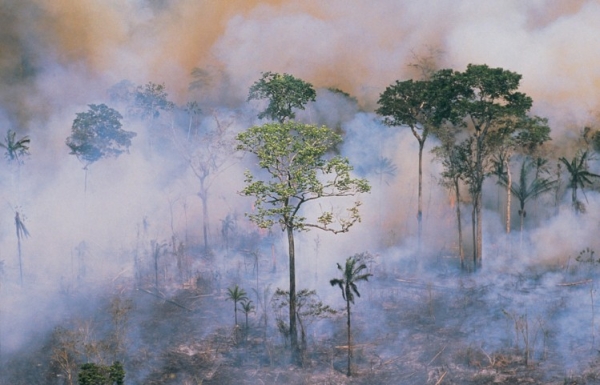
The statement came as the COP26 World Leaders Summit ‘Action on Forests and Land Use’ brought together an alliance of governments, companies, financial actors, and non-state leaders to raise ambition on forests and land-use.
Over 100 leaders, accounting for more than 86% of the world’s forests, committed to work together to halt and reverse forest loss and land degradation by 2030.
Trading in agricultural commodities and the impact the sector has on deforestation was directly addressed when 28 governments, representing 75% of global trade in key commodities that can threaten forests, signed up to a new Forest, Agriculture and Commodity Trade (FACT) Statement. This statement is part of a Roadmap of actions designed to deliver sustainable trade and reduce pressure on forests, including support for smallholder farmers and improving the transparency of supply chains.
Tate & Lyle delivers coal commitment -- 2 November
Ingredient supplier Tate & Lyle announced it has eliminated coal-based energy from its global operations.
The commitment was delivered four years ahead of its 2025 target. Progress, the company noted, is thanks to a US$150m multi-year capital investment programme.
“Moving away from onsite coal consumption is a key part of our sustainability programme to drive a significant reduction in our Scope 1 and 2 greenhouse gas emissions. We have now fully decommissioned all onsite coal systems at our sites,” Sara Leeman, Tate & Lyle’s Global Environmental Lead, said.
Tate & Lyle has previously detailed 2030 carbon reduction targets that have been validated by the Science Based Targets initiative. The company has said it will deliver a 30% absolute reduction in scope 1 and 2 GHG emissions and a 15% cut in scope 3 emissions by 2030.
“It’s clear that time is running out to make the changes needed to tackle climate change and enable societies to prosper. With COP26 taking place this month, we recognise the need for businesses to play their part in reducing global greenhouse gas emissions. By eliminating the use of coal-based energy in all our plants we have taken a significant step forward in our sustainability journey. We know we can, and need, to do more in the weeks, months and years ahead, and are committed to living our purpose, of which caring for our planet is a key pillar,” CEO Nick Hampton commented.
Heura calls out meat and dairy climate impact, COP ‘greenwashing’ -- 1 November
On World Vegan Day (1 November), proponents of plant-based diets took the opportunity to highlight the ‘single biggest way’ for citizens to cut their carbon footprint.
According to data from European plant-based brand Heura cutting meat and dairy from your diet can reduce your personal carbon footprint by as much as 73%. ‘Why aren’t world leaders adding this topic to the COP26 agenda?’ Heura queried, suggesting that ‘greenwashing’ is running rampant at the event.
Heura co-founders Marc Coloma and Bernat Añaños decided to shine a light on the issue through projection mapping from George Square, an area of Glasgow long known for political events and activism. The food activists want world leaders to acknowledge the environmental impact of the current ‘obsolete’ food system.
“With the support of our Good Rebel community, we decided to take a stand and unleash the ‘elephant in the room,’ through large-scale projection mapping designed to raise awareness and demand change,” said Añaños. “Our goal is to not only gain the attention of the powerful government officials having closed door conversations but also to empower people all around the world to vote with their fork. Because at Heura we understand that every meal is an opportunity to drive positive change on the planet.”
“Since we know the data proves a vegan diet to be effective in fighting climate change, it’s our responsibility to act. World leaders need to prioritize protecting the planet, not the status quo, and start having real debates on a global platform about the best ways to transition the population to a more plant-based diet, if we want to reduce emissions to keep the planet below 1.5 degrees of warming,” added Coloma.
Heura originally launched a petition making the request for the UK Government to ensure plant-based diets were included as a topic of discussion for COP26 earlier this year. The petition on Change.org received more than 2,000 signatures within days.
Hellmann’s puts food waste ‘front and centre’ -- 1 November
One third of the food we produce is wasted and if food waste was a country it would be the world’s third-largest GHG emitter, behind only the USA and China. Up to 10% of GNG emissions originate from food waste and loss.
However, according to Unilever condiments brand Hellmann’s, food waste often doesn’t receive the attention it deserves in discussions about the climate crisis.
For this reason, Hellman’s has teamed up with artist Itamar Gilboa to put food waste ‘front and centre’ at COP26. Gilboa has creasted an instillation, The Food Waste Effect, which features 403 plaster replicas of food items inside a class greenhouse. This represents a total of 117kg of food waste – the amount produced by the average UK family every six months. An LED ticker displays a stream of data quantifying the scale of food waste and GHG contributions.
“Through the work, I wish to create a space where conversations on ecology, permanence and personal responsibility can emerge. My hope is that the work will encourage people to think about the implication of their personal consumption habits on global food and climate issues, and, as a result, inspire them to recognise how much power they hold to combat waste and climate change,” the Israeli-Dutch artist commented.
Christina Bauer-Plank, Global Brand Vice President Hellmann’s at Unilever, said she hopes to help raise awareness of household food waste. “Globally, 70% of people agree “avoiding food waste” is important to them, yet household food waste remains a massive issue and significant contributor to climate change. In a major recent behaviour change study conducted by Hellmann’s we found that small changes can make a big difference. Adopting a single Use-Up day per week, for example, making a meal from only the food you already have in your home using a simple ‘flexipe’ can help cut household food waste by one third. With 60% of food waste happening in the home, we can all drive positive change from our own kitchens.”
The Vegetarian Butcher calls for leaders to acknowledge ‘elephant in the room’ is animal agriculture -- 28 October
The Vegetarian Butcher – a plant-based brand owned by COP26 sponsor Unilever – has urged world leaders to acknowledge that the environmental impact of meat consumption is the ‘elephant in the room’.
Food production is responsible for one-third of the GHG emissions we produce, and animal agriculture can be linked to almost 60% of this total.
The need to address consumption of animal proteins has been highlighted by the European Commission’s Farm to Fork strategy, the Food and Land Use Coalition and the UK’s Climate Change Committee. Nevertheless, the issue is absent from the COP26 agenda and lacking from European policy, The Vegetarian Butcher noted.
“The numbers don’t lie. A transition to diets that incorporate more plant-based food is a vital part of the solution to the climate crisis. We can all do our bit as individuals to switch from animal meat to plant-based protein, but the onus can’t just be on us. We need to see increased collaboration between NGOs, policy makers, and businesses for decisive progress to be made in building a more sustainable, food system,” Hugo Verkuil, CEO of The Vegetarian Butcher, said.
The brand wants governments to embed meat reduction into their national action plans. The Vegetarian Butcher has launched its ‘Elephant in the Room’ campaign and Instagram filter to raise awareness. It has also partnered with Glasgow-based artist SMUG to curate a giant 'Elephant in the Room’ mural on Pointhouse Road, appearing just in time for the start of the Summit.
Verkuil continued: “There are some amazing new products out there that mean that we can still eat foods with similar flavour, texture and nutrition to animal meat – so we don’t have to sacrifice our traditions or taste. But more importantly, we don’t have to sacrifice the health of the planet.”
Fairtrade says climate change ‘serious risk’ to ag production and livelihoods -- 27 October
A delegation of Fairtrade farmers from climate vulnerable nations is gathering at COP26 in Glasgow to warn political leaders that the summit presents their ‘last, best chance’ to reverse climate damage to their livelihoods, crops and communities.
The Fairtrade group – which includes small-scale farmers from Ghana, Paraguay, India, Malawi and Côte d’Ivoire – are speaking at a series of advocacy events to urge rich, high polluting governments to meet their pledges on emissions cuts and climate finance.
Fairtrade has released new research ahead of COP26 that shows the organisations 1.8m farmers and workers worldwide had ‘directly under threat’ from climate change.
Conducted by researchers from the Vrije University Amsterdam and Bern University of Applied Sciences, ‘Fairtrade and Climate Change’ reveals the intensifying effects of climate change pose a serious risk to global agricultural production in key regions worldwide. It paints a bleak picture of the future of popular foods such as bananas, coffee, and cocoa, warning that in some areas, the climate crisis will make crop production very difficult in the near future.
This places millions of farmers and smallholders at risk of financial collapse.
Fairtrade is advocating increased investment in climate adaptation and resilience measures.
“The report’s results are extremely alarming and a clarion call for immediate and comprehensive climate action,” said Dr Nyagoy Nyong’o, Global CEO at Fairtrade. “The threat to the future of many supply chains is very real and our planet’s farmers and agricultural workers are on the frontline of this global climate crisis. We must do everything to ensure they are not left behind and that they are indeed a part of the solution.”
Currently, just 2% of climate finance goes to small-holder farmers in low-income countries. Yet, 80% of the world’s food comes from 500 million family farms, Fairtrade stressed.
